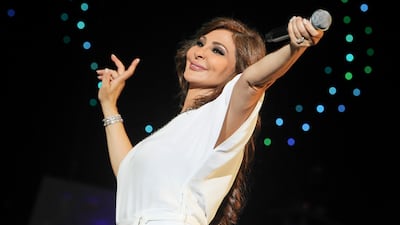An intimate yet significant gathering took place in Dubai last weekend. Musicians, producers, executives and staff from record labels and streaming platforms came together at the cosy restaurant Electric Pawnshop for what is intended to be one of many regular industry catch-ups organised by the Emirates Music Summit.
While such events might seem routine and sometimes even tiresome to some, they are, in fact, rare for the music and live events sector. In an industry driven by human connection, those within it rarely meet outside stale conferences or on the noisy side-lines of music festivals, overwhelmed by the intensity of year-round workloads.
Seeing many using this opportunity to set aside the gruff, acerbic personas often necessary to navigate the industry's choppy waters was refreshing. Instead, they talked openly about life outside the stage and recording studio. However, anxiety hung in the air, considering the unfolding tragedies in Palestine and Lebanon.
“It has been hard to sleep, and all I’ve been doing is doom-scrolling on my phone,” a Palestinian-Jordanian singer told me. A Lebanese manager handling a roster of regional artists described how he was trying to “keep it together", while putting on a brave face for his equally concerned artists. “A rocket struck close to the graveyard where my grandmother is buried,” he said. “Sometimes the work is a temporary relief, but I find it hard to be enthusiastic about anything.”
Though grim, these conversations are essential. Having covered the region's music industry for over a decade, I’ve observed that mental health is rarely discussed, whether on record or off stage. The reasons for this are both cultural and systemic.
For much of the history of popular Arabic music, dating back to the 1930s and 1940s, songs addressing mental health have been impersonal or cloaked in metaphors. This can be attributed to the role these songs played in society.
The Vietnam War inspired a generation of American artists to write unflinchingly about depression and PTSD, giving voice to a nation grappling with its flaws. In contrast, the politically seismic periods in the Middle East, particularly the Lebanese Civil War that began in 1975, produced a different but equally potent soundtrack.
From Fairouz’s Bhebbak Ya Lebnan (I Love Lebanon) to Majida El Roumi’s Beirut Set El Donya, these masterpieces inspired resilience rather than addressed trauma. Yet, they were no less impactful to the Lebanese people at the time, as popular singer Assi El Hallani told me in a previous interview.
“During the civil war, you had people like Fairouz singing songs that were nationalistic and revolutionary. These songs rallied the people because we were living in difficult times,” he said. “That extended to artists like me, who grew up during the civil war but whose career started relatively after it. We were singing songs that appealed to the Lebanese diaspora, who are living everywhere now. There is an emotional attachment they have to our songs.”
This emotional resonance extended beyond nationalistic songs. Non-Lebanese artists also expressed vulnerability through lovelorn lyrics, often saying the things we felt but rarely uttered, constrained by regional conservatism. One notable example is Umm Kulthum’s 1966 hit Al-Atlal (The Ruins), in which the normally stoic Egyptian singer is vulnerable, torn between salvaging a broken relationship and breaking free.
In the past decade, however, Arabic musicians have increasingly turned inward, telling stories of personal frailties. Lebanese pop star Elissa may have done more for breast cancer awareness than many campaigns with her 2018 hit Ila Kol Elli Bihebbouni, a ballad and music video documenting the anxiety and uncertainty following her real-life diagnosis.
Meanwhile, Jordanian-Palestinian rapper The Synaptik’s 2018 song Ritalin, named after medication for ADHD, marked one of the first times an Arab artist openly discussed mental health conditions. Moroccan singer Jihane Bougrine released Rahat El-Bal (Peace of Mind) in 2022, where she recounts a family member’s 20 years of lived experience with schizophrenia.
“I wrote it because I’ve witnessed first-hand the devastating impact of mental illness, particularly in a family member who has lived with schizophrenia for over 20 years,” Bougrine told The National. “In Moroccan society, and much of the Arab world, mental health remains a taboo subject, often misunderstood or dismissed.
"Writing this song was my way of putting a name to the suffering and starting a conversation around it. Music has the power to break down barriers, and I believe it’s crucial for Arab artists to sing more about mental health. When we bring these topics into the open, we encourage understanding, empathy, and ultimately healing.”
The region's music industry should encourage more artists to find their voice on the subject. This means making mental health awareness a key pillar of its infrastructure. More venues, platforms and community spaces need to be established where musicians can share their mental health journeys. Streaming platforms should promote more mental health-related songs through curated playlists, and music and cultural conferences should include mental health as a major point of discussion.
While last week’s informal gathering in Dubai is a good start, these discussions deserve the biggest of stages.
Saeed Saeed is a 2024-25 Rosalynn Carter Mental Health Journalism Fellow


